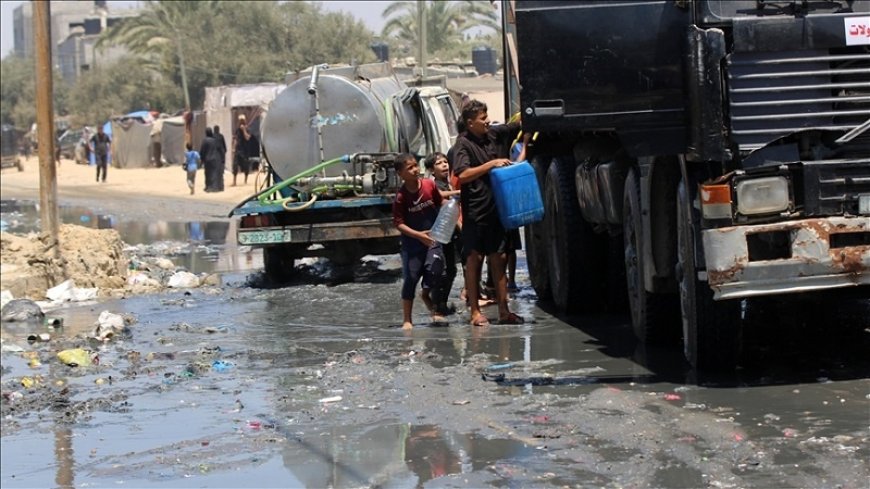UN Coordinator Urges Adherence to International Law Following Israeli Attack on Rafah Water Reservoir
In a recent statement, Sigrid Kaag, the United Nations Coordinator for Humanitarian Affairs and Reconstruction in Gaza, has called for strict adherence to international law following an Israeli military attack on a drinking water reservoir in Rafah, located in the southern Gaza Strip. Kaag's remarks underscore the urgency of upholding legal standards in conflict zones to ensure humanitarian principles are respected.

In a recent statement, Sigrid Kaag, the United Nations Coordinator for Humanitarian Affairs and Reconstruction in Gaza, has called for strict adherence to international law following an Israeli military attack on a drinking water reservoir in Rafah, located in the southern Gaza Strip. Kaag's remarks underscore the urgency of upholding legal standards in conflict zones to ensure humanitarian principles are respected.
The attack, which targeted the Tal al-Sultan water reservoir in Rafah, has been officially acknowledged by the Israeli military. The army has confirmed that its forces were responsible for the destruction of the reservoir, and an internal investigation has been initiated to examine the circumstances surrounding the incident.
A video circulating online reportedly shows an Israeli soldier using an explosive device to detonate the reservoir, further intensifying concerns about the growing water crisis in Rafah. The destruction of this crucial water infrastructure has exacerbated an already dire situation, with local residents facing severe shortages of potable water.
Humanitarian and Legal Concerns
Kaag emphasized that international law provides clear guidelines on the conduct of hostilities and the protection of civilian infrastructure. According to the laws of armed conflict, attacks on essential civilian infrastructure, such as water supplies, are strictly regulated to prevent undue harm to the civilian population.
"The destruction of critical infrastructure, including water reservoirs, directly impacts the well-being and survival of civilian populations," Kaag stated. "It is imperative that all parties involved in the conflict adhere to international legal standards to mitigate further humanitarian suffering."
Ongoing Water Crisis in Gaza
The attack on the Rafah water reservoir has intensified existing fears about the water crisis in Gaza. Local institutions and municipalities have previously accused the Israeli military of deliberate attacks on water networks, wells, and desalination plants. Such actions, they argue, significantly worsen the already severe shortages of clean drinking water and hinder efforts to provide essential services to the population.
The Gaza Strip has long struggled with inadequate access to safe drinking water due to ongoing conflict, blockades, and infrastructure damage. The recent attack has highlighted the critical need for a concerted international response to address the humanitarian needs of Gaza’s residents and ensure that essential services are protected during conflicts.
Response and Investigation
The Israeli government has launched an investigation into the incident, but the destruction has already had a substantial impact on the local population. In the interim, humanitarian organizations and local authorities are working to provide emergency assistance and assess the full extent of the damage.
Kaag's call for adherence to international law and the protection of civilian infrastructure serves as a reminder of the broader implications of such attacks on humanitarian conditions. As the situation in Gaza continues to evolve, the international community remains engaged in monitoring and addressing the challenges faced by those affected by the ongoing conflict.
Broader Implications
The incident in Rafah underscores the urgent need for a renewed focus on humanitarian principles in conflict zones. Ensuring compliance with international law is crucial to protecting civilian lives and infrastructure, and preventing further deterioration of the humanitarian situation.
As the investigation into the Rafah attack progresses, it will be essential for all parties to demonstrate a commitment to legal and ethical standards, and for the international community to continue advocating for the protection of civilian infrastructure in conflict-affected areas.













































